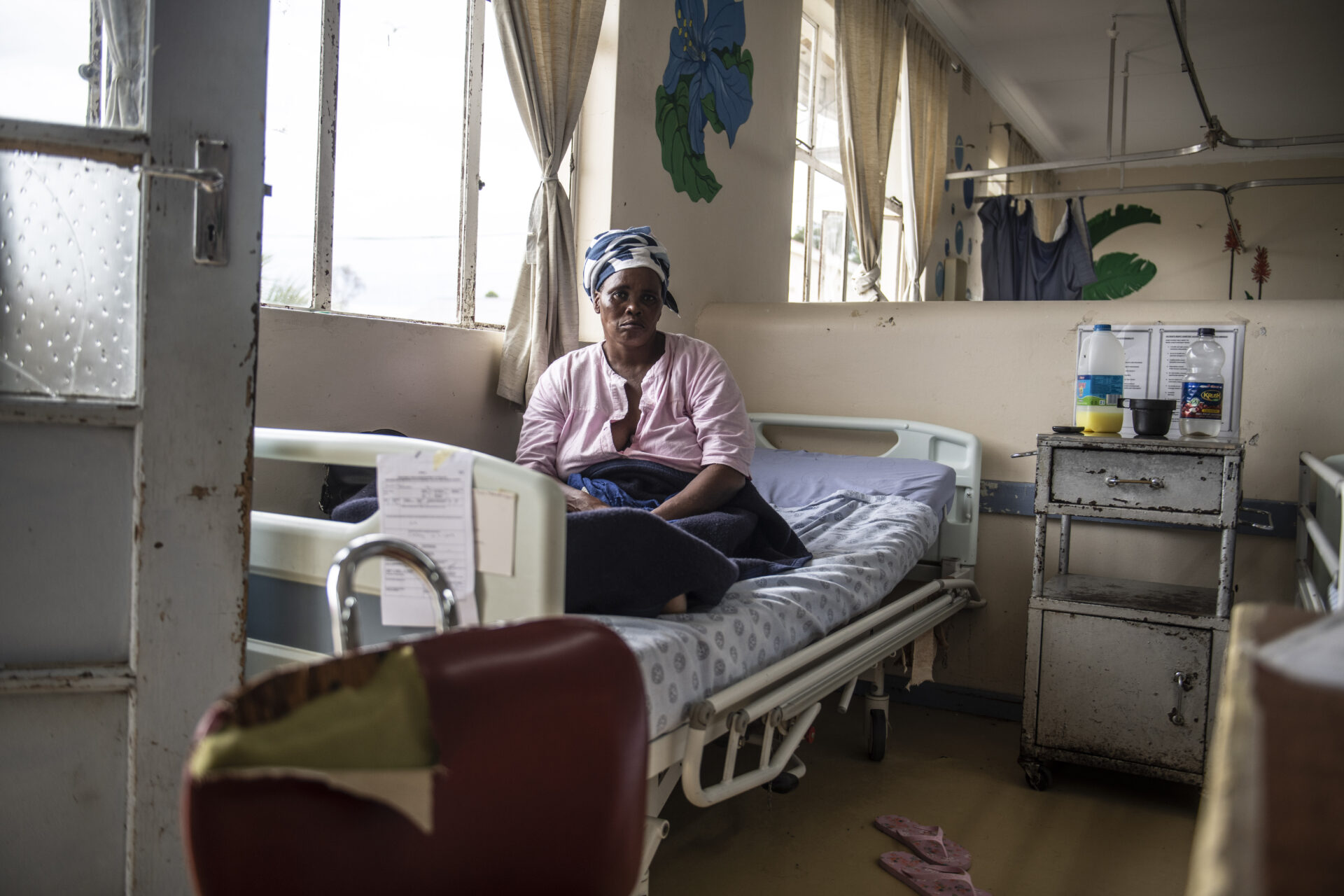© Copyright Bhekisisa Centre for Health Journalism | Privacy Policy | Terms and Conditions | PAIA Manual
‘I’m a smoker — and I want stricter tobacco control’
Civil rights activist Koketso Moeti has been smoking for over 20 years. Yet she supports South Africa’s new Tobacco Bill, which bans indoor smoking, including vaping, in public buildings. Here’s why.
Why is TB called the ‘disease of paper’ in Eastern Cape villages?
The words we use to describe diseases tell us more about how people experience living with it. The isiXhosa word for tuberculosis, isifo sephepha, is a case in point. Understanding where it comes from can help to break down the stigma around the disease.
Does SA’s biggest killer show up in your party’s manifesto?
A curable and preventable disease is South Africa’s biggest killer. Is your political party going to do something about it — and does it show up in their election manifesto?
Stigma, inaction and cost: Will SA treat obesity with lessons learned from HIV?
About two-thirds of women and almost a third of men in South Africa are overweight or have obesity. It’s a new public health threat, which, if not acted on now, will have serious consequences for the wellbeing of the country. But rather than making it a game of blame and shame, there are two things that can be done right now.
Eating to survive: How to know if your party is taking hunger seriously
David Harrison breaks down five ways in which hunger among children can be decreased and explains why it’s important to hold the party you plan to vote for accountable to do something about food insecurity.
A plastic sheet can save 70 000 lives a year — here’s how
Every year, about 14-million women lose so much blood during childbirth that they could die; about 70 000 do. The condition is called postpartum haemorrhage — but it can be prevented if nurses and midwives know what to look for and can act in time. Health workers from a hospital in Kenya write about how a new treatment approach has saved lives in their labour ward.
From Oscar to Diepsloot: Why do men become violent?
Bhekisisa and Media Hack Collective's 2021 #SayHerName project, researched what gender-based violence stories make it onto the news.The data backed up what we...
Bending the curve: What a decade-long roll-out of the anti-HIV pill can teach the...
What can the roll-out of a two-monthly HIV prevention injection learn from how the daily anti-HIV pill was introduced? Create demand, make the jab easy to get hold of and ensure it’s not stigmatised, write Wawira Nyagah and Mitchell Warren.
There is no planet B: How HIV can teach us to deal with the...
Climate change is to public health today what Aids was 30 years ago, experts say — and it could put a spanner in the works for ending Aids as a public health threat by 2030. Yogan Pillay writes in an op-ed today what lessons we can take from responding to HIV to tackle the health effects of climate change.
The fine line between wrong and almost right — and how that plays out...
What should journalists do when presidents say the wrong thing — report the story or bury it? A medical doctor, editor, Rhodes Scholar and New York City’s health commissioner during COVID take a deep dive.
Right of reply: “It’s far more complex” — the health department responds to one...
Will the proposed National Health Insurance (NHI) scheme make things worse rather than better? Here’s the response to this question from the head of the NHI, Nicholas Crisp.
NHI: The problem with trying to kill two birds with one stone
The National Health Insurance scheme aims to solve two problems — fixing poorly-run health facilities and distributing the money available for healthcare in the country in a more equitable way — simultaneously. But trying to fix two things at once may make things worse, writes Dave Martin.
Inequality didn’t rise from hell: It’s man-made — and there’s nothing like a pandemic...
Why do pandemics such as Aids not automatically end when we have the medicine to control them? Because they play out in a world where inequality frequently prevents drugs from reaching the people who need it most, writes Mia Malan.
How to get ARVs delivered to your home in the rural Eastern Cape
In South Africa’s rural areas, people often face a long, arduous journey to get to a clinic where they can pick up their HIV medicines. Not taking the drugs regularly will mean that the person’s health suffers, which can make it even harder to make the trip. The Bulungula Incubator in the rural Eastern Cape has figured out how to set up a medicine pick-up point closer to people’s homes.
More food rations could devastate these refugees. Here’s why
Prevented by Bangladeshi authorities from working, refugees in the Cox’s Bazar camp are dependent on food aid, which is being cut again and again. “We cannot carry on like this,” writes Yasmin Ara.
‘There’s nothing un-African about being gay’: A mother’s plea for gay children’s right to...
In this moving account, an HIV activist describes her relationship with her gay son and her fears over Uganda’s homophobic bill that criminalises his sexuality.

















